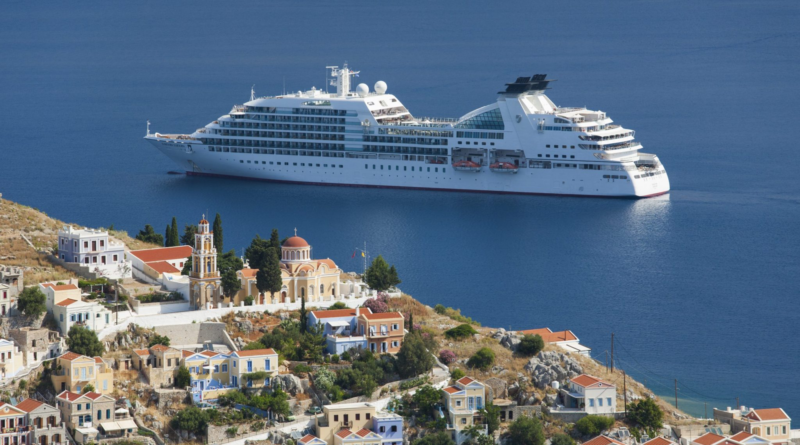Anti-tourist backlash in Europe causes cruise ships to change course
Editor’s note: This article was first published on July 17 2024.
The European head of the world’s largest cruise trade body has warned that its members may need to avoid some of the world’s most famous destinations to protect passengers amid a backlash against overtourism.
Several European cities have vented their frustrations over rising tourist numbers and its impact on the price of everything from food to accommodation and the local ecosystem. Tourism’s environmental footprint is a complaint usually levied at giant carbon-emitting cruise ships.
In Barcelona, a popular setting-off point for cruise liners, locals have taken to squirting tourists with water pistols. Protestors in the Spanish Canary Islands started a hunger strike in April to protest overcrowding.
Last October, cruise passengers were greeted by protesters dressed as polar bears and sea lions as they disembarked at the French port of Brittany, in a nod to the industry’s penchant for pollution.
A study from the campaign group Transport & Environment found Europe’s luxury cruise ships emitted as much toxic sulphur as 1 billion cars.
A rising tide
As protests have become increasingly hostile, the Cruise Lines International Association (CLIA) has suggested that it may have to divert ships to protect passengers from violence.
“There will be some consideration of adapting the itineraries if for some reason we feel that all passengers will not be well-treated,” Marie-Caroline Laurent, European director of the CLIA, told Reuters.
Laurent didn’t specify which cities were liable to be axed from itineraries, but it’s easy to join the dots after a wave of protests across the continent in recent months.
The mayor of Barcelona, Europe’s most popular port for cruise ships, said the city couldn’t take more passengers than the 3.5 million it accepted in 2023.
The CLIA defended its presence in Barcelona, saying only 4% of the city’s visitors were cruise passengers.
Venice, which banned cruise ships from the center in 2021, introduced a so-called “tourist tax” to deter or make extra money from day-trippers to the city this summer, months after moving to limit the size of groups that could congregate in the city.
Amsterdam, meanwhile, plans to nearly halve the number of cruises that can stop in its port every year by 2026 and ban them altogether by 2035.
And in Greece, locals have taken to using drones to police new rules on sun loungers in a bid to stop overcrowding on the country’s beaches.
Despite grumbling about a rising lack of hospitality, the global cruise industry is set to carry 10.7% more passengers in 2028 than in 2023, when 31.7 million tourists boarded the liners.




